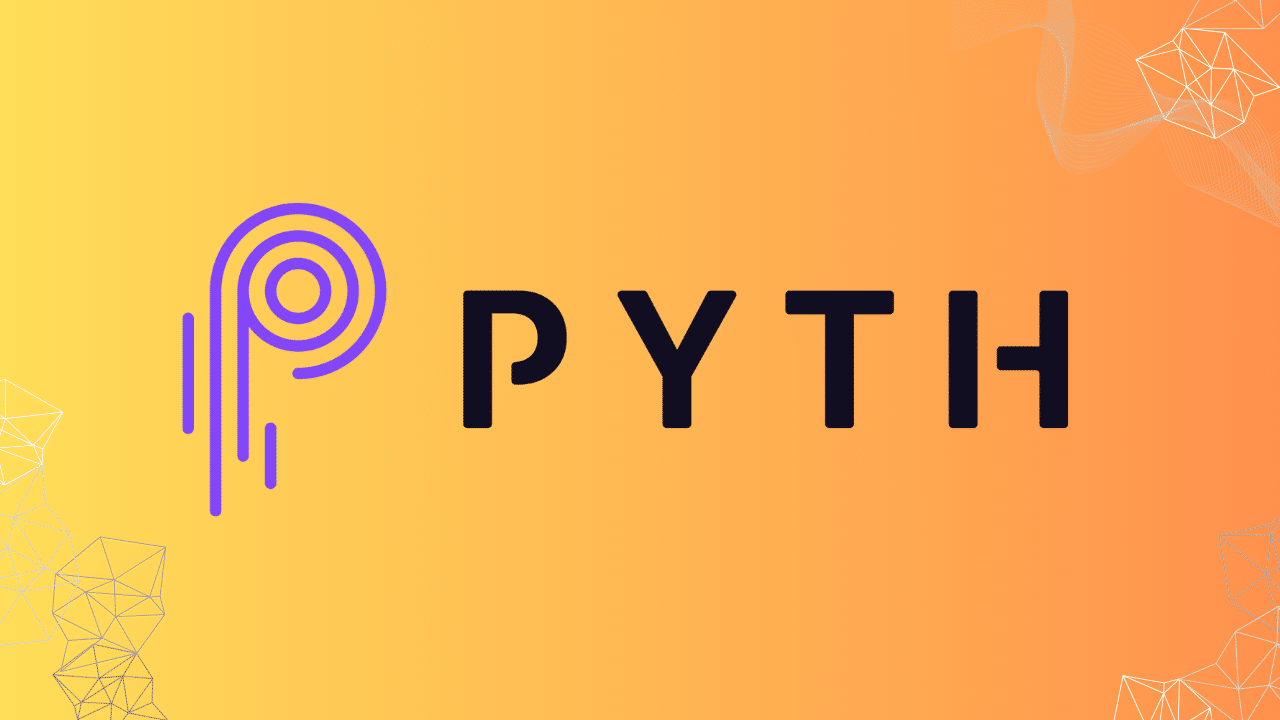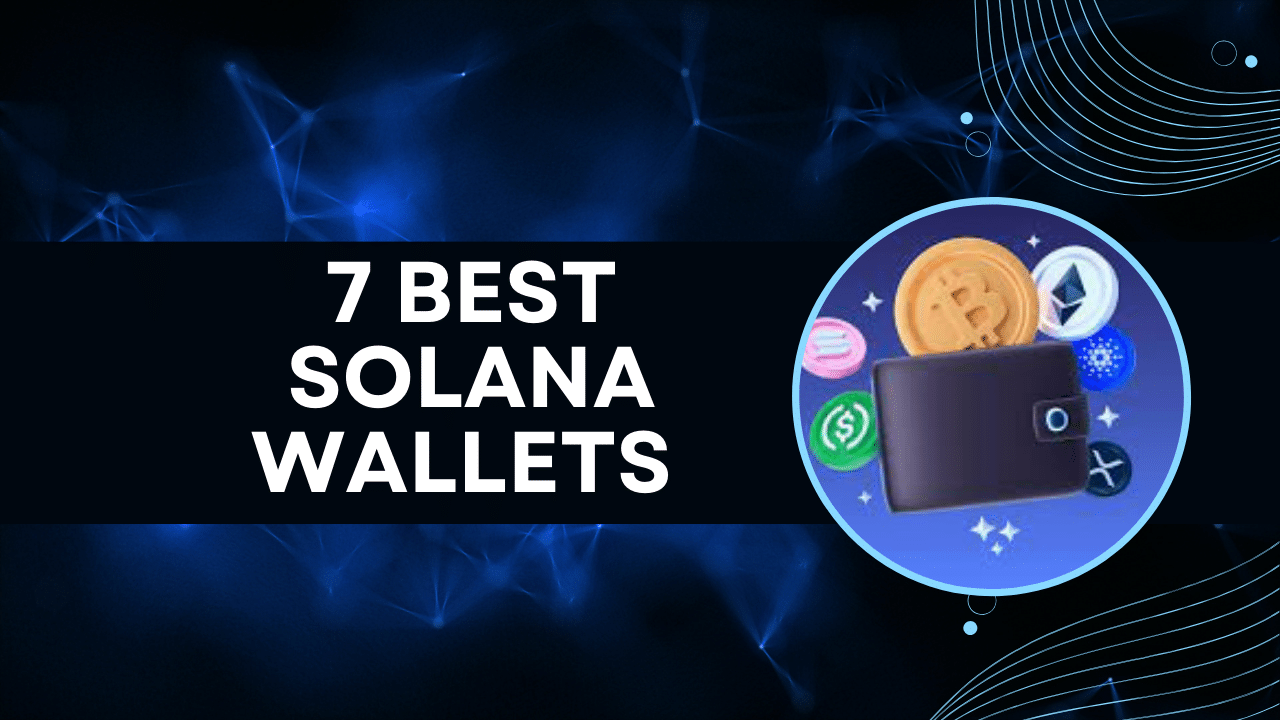Contents
|
|
Welcome to the world of Pyth Network, a decentralized oracle solution revolutionizing real-time data for blockchain applications. With its precision and accuracy, Pyth Network ensures that blockchain applications receive real-time data from trusted sources like chainlink. This eliminates any delays or discrepancies in data, allowing for more efficient and reliable transactions. By leveraging the power of chainlink, Pyth Network’s vaults securely store and provide access to real-time data at all times. Say goodbye to outdated information and say hello to the future of blockchain technology with Pyth Network. Bridging the gap between traditional financial markets and blockchain technology, Pyth Network offers accurate and reliable data feeds for decentralized finance (DeFi) platforms. Using precision chainlink technology, Pyth Network ensures secure and trustworthy data for DeFi vaults. Users can access real-time information multiple times throughout the day, enhancing their investment strategies.
In today’s fast-paced digital landscape, access to real-time data is crucial for informed decision-making. With the integration of low latency pyth oracles and the use of chainlink, businesses can now make faster and more accurate decisions based on real-time information. However, obtaining trustworthy and up-to-date information on chainlink and low latency pyth oracles can be challenging in the decentralized space. This is where Pyth Network, powered by Chainlink, steps in, providing a secure and transparent infrastructure that enables developers to seamlessly integrate real-world data into their applications.
By leveraging innovative design principles, Pyth Network ensures that DeFi platforms have access to precise market prices, enabling users to make informed investment choices and execute transactions with confidence on the blockchain chain. With its commitment to accuracy and reliability, Pyth Network is poised to reshape the future of decentralized finance by leveraging the power of the chain.
Contents
Pyth Network’s Role in Crypto Ecosystem
Pyth Network is a trusted chain oracle network that plays a crucial role within the cryptocurrency ecosystem. Its primary function is to provide precise market data to decentralized finance (DeFi) projects, ensuring transparency and reliability.
Seamless Access to Real-Time Market Data
One of the key advantages of Pyth Network is its ability to enable smart contracts to access real-time information from traditional financial markets seamlessly. This means that DeFi applications can rely on accurate and up-to-date data when executing various operations such as price feeds, asset valuations, and risk calculations.
By integrating with Pyth Network, developers can leverage its vast network of high-quality data providers. These providers continuously supply market data across various asset classes, including stocks, commodities, cryptocurrencies, and foreign exchange rates. This ensures that DeFi projects have access to reliable information necessary for their operations.
Enhancing Efficiency and Security
Pyth Network’s role in providing reliable market data enhances the overall efficiency and security of the entire crypto ecosystem. With accurate and real-time information at their disposal, DeFi applications can make informed decisions quickly without relying on outdated or potentially manipulated data sources.
The transparency offered by Pyth Network also helps eliminate any doubts or concerns regarding the accuracy of market data used in DeFi projects. By leveraging reputable data providers within its network, Pyth ensures that the information being accessed by smart contracts is trustworthy and verifiable.
Empowering DeFi Projects
DeFi projects heavily rely on accurate market data for various functionalities such as lending platforms, decentralized exchanges (DEXs), stablecoin protocols, and automated trading strategies. Without reliable oracle networks like Pyth, these projects would face significant challenges in obtaining timely and precise information from traditional financial markets.
By providing a seamless integration between blockchain-based smart contracts and real-world financial markets, Pyth empowers DeFi projects to expand their capabilities while maintaining trustworthiness. This opens up a world of possibilities for developers and users alike, enabling them to explore innovative financial applications within the crypto ecosystem.
Integration with Solana Blockchain
Pyth Network is revolutionizing the way market data is accessed and utilized in the crypto ecosystem. One of the key factors that sets Pyth apart is its integration with the Solana blockchain, which brings a host of benefits to users and developers alike.
Leveraging Solana’s High-Speed and Low-Cost Transaction Capabilities
By building on the Solana blockchain, Pyth Network takes advantage of its high-speed and low-cost transaction capabilities. Unlike other blockchains like Ethereum, which can be slow and expensive due to congestion, Solana offers lightning-fast transaction processing at a fraction of the cost. This means that market data updates on Pyth are near-instantaneous, ensuring that users have access to real-time information without any delays or bottlenecks.
Near-Instantaneous Updates of Market Data On-Chain
The integration with Solana allows Pyth Network to provide near-instantaneous updates of market data on-chain. This is crucial for decentralized finance (DeFi) applications that rely on accurate and up-to-date information for various financial instruments such as decentralized perpetuals, options contracts, and vaults trades. With Pyth’s integration, these applications can access reliable market data in real-time, enabling them to make informed decisions quickly.
Fast and Efficient Data Delivery to DeFi Applications
Thanks to Solana’s scalability, Pyth ensures fast and efficient delivery of data to DeFi applications. The blockchain’s high throughput enables Pyth Network to handle large volumes of data without compromising speed or performance. This is particularly important in the rapidly evolving world of DeFi, where timely access to market data can make all the difference in executing profitable trades or managing risk effectively.
In addition to speed and efficiency, Pyth’s integration with Solana also enhances chain security. By leveraging the robustness of the underlying blockchain infrastructure, Pyth ensures that market data remains tamper-proof and reliable. This is crucial for maintaining trust in the accuracy and integrity of the data, especially in an industry where even a slight manipulation can have significant financial implications.
Understanding Pyth Network API Capabilities
The Pyth Network API is a powerful tool that provides developers with easy access to real-time market data across various asset classes. With this API, developers can fetch price feeds, trade volumes, and other essential metrics from traditional markets. Let’s explore the capabilities of the Pyth Network API in more detail.
Real-Time Market Data Access
The Pyth Network API allows developers to tap into real-time market data seamlessly. This means you can obtain up-to-the-minute information about prices and trading volumes for various assets. Whether you’re interested in stocks, commodities, or cryptocurrencies, the Pyth Network API has got you covered.
Fetching Price Feeds
One of the key features of the Pyth Network API is its ability to fetch price feeds. This means that developers can easily retrieve accurate and reliable price information for different assets in real-time. By leveraging this functionality, you can build applications that require precise pricing data for making informed decisions.
Trade Volumes and Metrics
In addition to price feeds, the Pyth Network API also provides access to trade volumes and other essential metrics. This allows developers to analyze market trends and gain insights into trading activities. By incorporating these metrics into your applications, you can create powerful tools for monitoring market behavior.
Multi-Language Support
The Pyth Network API supports multiple programming languages, making it accessible for developers worldwide. Whether you prefer Python, JavaScript, or any other popular language, you can integrate the Pyth Network API seamlessly into your projects. This flexibility ensures that developers from diverse backgrounds can leverage the capabilities of the Pyth Network API effectively.
By offering multi-language support, the Pyth Network API eliminates barriers and empowers developers to create innovative applications without constraints.
Use Cases
The versatility of the Pyth Network API opens up a wide range of use cases across different industries. For example:
-
Financial institutions can integrate real-time market data into their trading platforms to provide accurate pricing information to their clients.
-
Developers can build decentralized finance (DeFi) applications that rely on real-time market data for smart contract execution and asset valuation.
-
Algorithmic traders can leverage the Pyth Network API to access real-time price feeds and execute trades based on predefined strategies.
Pyth Network Community Engagement
The vibrant community around Pyth plays a crucial role in its growth and development. Community members actively contribute to discussions, collaborations, and decision-making processes related to the network’s upgrades and improvements.
Community engagement is a cornerstone of the Pyth Network. It fosters an inclusive environment where individuals with diverse backgrounds come together to share their knowledge and expertise. Regular meetups, webinars, and hackathons are organized to facilitate this knowledge sharing among community members.
These events serve as platforms for participants to learn from each other, exchange ideas, and explore new possibilities within the Pyth ecosystem. They provide opportunities for developers, enthusiasts, and users alike to connect with like-minded individuals who share a common interest in the network.
One of the key aspects of community engagement in the Pyth Network is governance participation. Community members have the opportunity to actively participate in important decisions that shape the future of the network. This ensures that the voices of those who are most invested in Pyth are heard and considered.
Through voting mechanisms or consensus-based approaches, community members can propose and vote on various network upgrades or changes. This democratic process empowers individuals within the community to have a say in how the network evolves over time.
Furthermore, active engagement within the community allows individuals to stay up-to-date with the latest developments, updates, and advancements within Pyth. By participating in discussions on forums or social media channels dedicated to Pyth Network, members can gain valuable insights into ongoing projects or initiatives.
In addition to online interactions, offline events such as conferences or workshops provide opportunities for face-to-face networking and collaboration among community members. These events not only strengthen relationships but also foster innovation through collaborative efforts between different stakeholders involved in Pyth.
The strong sense of community surrounding Pyth has contributed significantly to its success thus far. The collective knowledge-sharing culture encourages continuous learning and improvement within the network ecosystem. As more people join the community and actively engage in discussions, Pyth will continue to grow and evolve into a more robust and efficient network.
Airdrop Details and Token Information
PYTH tokens were distributed through an airdrop event, allowing eligible participants to receive free tokens based on their Solana holdings. This airdrop served as a way to engage and reward the community for their support and involvement in the Pyth Network ecosystem.
PYTH serves as the native utility token within the Pyth ecosystem, fulfilling various purposes such as staking and governance. By holding PYTH tokens, users have the opportunity to participate in network consensus and decision-making processes. This not only gives them a voice but also allows them to contribute to shaping the future of Pyth.
One notable aspect of PYTH tokens is its fixed supply. This means that there is a limited number of tokens available, ensuring scarcity and potentially preserving value over time. The fixed supply mechanism can create an environment where demand outpaces supply, leading to potential price appreciation for PYTH token holders.
The distribution of PYTH tokens through an airdrop event helps foster decentralization within the Pyth Network ecosystem. By distributing tokens based on Solana holdings, it ensures that those who are actively involved in supporting Solana’s blockchain infrastructure have the opportunity to participate in the growth of Pyth.
As with any cryptocurrency or token, it’s essential for users to understand the fundamentals of PYTH before engaging with it. Familiarizing oneself with its use cases, potential benefits, and risks associated with holding and using PYTH tokens is crucial for making informed decisions within the ecosystem.
Analyzing Pyth Network’s Market Performance
Pyth Network has made quite a splash in the crypto community with its innovative approach to oracle solutions. This has garnered significant attention and interest from investors and developers alike. As a result, the market performance of Pyth Network has been on an upward trajectory.
One of the key indicators of Pyth Network’s success is its growing presence in decentralized finance (DeFi). With more and more DeFi projects integrating with Pyth, it is becoming a reliable source for financial markets data. This integration allows users to access accurate and real-time pricing information, which is crucial for making informed trading decisions.
The increasing adoption of Pyth Network in DeFi is also reflected in its trading volume. As more users rely on Pyth for reliable pricing data, the trading volume on the network continues to rise. This not only indicates trust in the platform but also demonstrates its ability to handle large-scale transactions efficiently.
Another important factor contributing to Pyth Network’s market performance is its market cap. As more investors recognize the value and potential of Pyth, they are investing in the network’s native token, PYTH. This increased demand for PYTH tokens drives up their price and consequently boosts the overall market cap of Pyth Network.
Furthermore, as Pyth expands its partnerships with various institutions and projects within the crypto space, its market presence is expected to grow even further. These collaborations not only enhance the credibility of Pyth but also open up new avenues for innovation and development within decentralized finance.
Price Dynamics of Pyth Network (PYTH)
PYTH Token’s Price and Market Forces
The price of PYTH tokens is influenced by various market forces and demand from users who are seeking access to reliable data feeds. As a decentralized network that provides low latency pyth oracles, Pyth Network plays a critical role in delivering accurate and up-to-date price data to blockchain applications.
Factors Influencing PYTH Token’s Price Dynamics
Several factors can impact the price dynamics of PYTH tokens. Firstly, the usage and adoption of the Pyth Network can play a significant role. As more projects and platforms integrate with Pyth Network’s price feeds, the demand for PYTH tokens may increase, potentially driving up their value.
Partnerships also hold substantial influence over the token’s price dynamics. Collaborations with prominent blockchain projects or traditional financial institutions can enhance the credibility and visibility of Pyth Network, attracting more users to leverage its services. Increased demand resulting from such partnerships may positively impact the token’s value.
Furthermore, overall market sentiment within the cryptocurrency space can affect PYTH token prices. During periods of bullish market conditions where there is widespread optimism about cryptocurrencies, investors may show increased interest in acquiring PYTH tokens as part of their portfolio diversification strategy. Conversely, bearish market conditions might lead to a decrease in demand for these tokens.
Analyzing Potential Value
Investors considering the potential value of PYTH tokens should take into account these various factors that influence their price dynamics. A thorough analysis of network usage, partnerships, and overall market sentiment can provide insights into whether the token has growth potential.
It is crucial to evaluate how extensively Pyth Network is being utilized by different blockchain applications and platforms. The wider its adoption across various sectors, the higher the potential demand for PYTH tokens as users seek reliable real-time pricing information.
Examining partnerships forged by Pyth Network allows investors to gauge its credibility and potential for future growth. Collaborations with established players in the blockchain or traditional finance industry can significantly boost Pyth Network’s reputation and attract more users to its ecosystem.
Finally, keeping an eye on the overall market sentiment helps investors make informed decisions about PYTH tokens. Understanding the broader trends and sentiments within the cryptocurrency market can provide valuable insights into whether now is a favorable time to invest in PYTH tokens or if it would be prudent to wait for more favorable conditions.
How to Acquire Pyth Network Tokens
Participating in the Initial Airdrop or Purchasing on Exchanges
PYTH tokens, the native cryptocurrency of the Pyth Network, can be acquired through two primary methods: participating in the initial airdrop or purchasing them on supported exchanges. The initial airdrop is a distribution of tokens to eligible participants as a way to bootstrap the network and reward early adopters. Keep an eye out for announcements regarding any upcoming airdrops and make sure you meet the requirements to participate.
If you prefer to purchase PYTH tokens directly, you can check for listings on reputable cryptocurrency exchanges that support Solana-based tokens. Some popular exchanges that may offer PYTH trading include Binance, FTX, and Serum DEX. However, it’s essential to conduct thorough research and ensure that the exchange you choose is trustworthy and reliable.
Checking for Listings on Reputable Cryptocurrency Exchanges
When searching for exchanges that list PYTH tokens, it’s crucial to consider factors such as liquidity, security measures, fees, and user experience. Look for well-established platforms with a solid track record of supporting Solana-based projects. These exchanges often provide a seamless user interface and robust security features to protect your assets.
Consider checking community forums and social media channels dedicated to Pyth Network discussions. These platforms are excellent sources of information where users share their experiences with different exchanges and provide insights into liquidity levels and trading volumes.
Following Proper Security Measures
Whether acquiring PYTH tokens through an airdrop or purchasing them on an exchange, it’s vital to prioritize security measures throughout the process. Safeguarding your digital assets is paramount in the world of cryptocurrencies.
To enhance security:
-
Use hardware wallets like Ledger or Trezor.
-
Enable two-factor authentication (2FA) wherever possible.
-
Be cautious about sharing sensitive information online.
-
Double-check the website URLs to avoid phishing attempts.
-
Regularly update your software and keep your devices protected with antivirus programs.
By following these security measures, you can significantly reduce the risk of falling victim to scams or losing your PYTH tokens.
Sentiment and Outlook for Pyth Network
The sentiment surrounding Pyth Network remains positive as it continues to gain traction in the DeFi space. As more applications rely on accurate real-time data, the demand for Pyth’s services is likely to increase. With ongoing developments and partnerships, the outlook for Pyth appears promising for future growth.
Positive Sentiment in the DeFi Space
Pyth Network has been receiving positive feedback within the decentralized finance (DeFi) community. Its innovative approach to providing real-time data has garnered attention and interest from various players in the industry. The network’s ability to deliver reliable and precise information quickly has become a valuable asset for many DeFi projects.
Increasing Demand for Real-Time Data
As more applications are built on blockchain technology, the need for accurate and up-to-date data becomes crucial. Traditional financial markets have long relied on centralized systems to provide this information, but with the rise of decentralized platforms, there is a growing demand for decentralized oracle networks like Pyth.
Pyth Network offers a solution by aggregating data from multiple sources and delivering it securely onto the blockchain. This ensures that applications can access reliable real-time data without compromising security or transparency. As more developers recognize the importance of accurate information, they are likely to turn to Pyth as a trusted source.
Ongoing Developments and Partnerships
Pyth Network continues to make significant progress with its development roadmap. The team behind Pyth is actively working on expanding its network of data providers, ensuring a diverse range of high-quality data sources are available. By partnering with reputable institutions and firms across various industries, Pyth aims to establish itself as a reliable provider of real-time data.
These partnerships not only enhance the credibility of Pyth but also contribute to its overall growth potential. By collaborating with established organizations, Pyth gains access to valuable resources, expertise, and user bases that can help drive adoption and usage of its network.
Promising Outlook for Future Growth
With the increasing demand for real-time data and ongoing developments, Pyth Network’s outlook appears promising. As more applications integrate with the Pyth network and rely on its accurate data feeds, the value proposition of Pyth tokens is likely to increase. This could potentially lead to a positive impact on the token’s price and overall market sentiment.
Furthermore, as the DeFi space continues to expand and evolve, Pyth Network has positioned itself as a key player in providing reliable data infrastructure.
Conclusion
So there you have it, a comprehensive overview of the Pyth Network and its role in the crypto ecosystem. We explored how Pyth Network integrates with the Solana Blockchain and discussed its API capabilities. We also delved into the community engagement surrounding Pyth Network and analyzed its market performance. We provided insights into acquiring Pyth Network tokens and discussed the sentiment and outlook for this innovative project.
As you can see, Pyth Network is poised to revolutionize data on the blockchain, providing accurate and real-time information that can be utilized across various industries. With its robust infrastructure and growing community, Pyth Network has the potential to become a key player in the decentralized finance space. Whether you’re an investor, developer, or simply curious about blockchain technology, exploring Pyth Network further could prove to be an exciting and rewarding endeavor.
So why not dive deeper into Pyth Network? Join the community, stay updated on its progress, and witness firsthand how this project reshapes the way we access and utilize data in the digital age.
FAQs
How can I set up a network in Python?
To set up a network in Python, you can use libraries like socket or http.server. These libraries provide functions and classes to create and manage network connections. You can utilize them to establish server-client communication, send/receive data over the network, and handle various network protocols.
What is the difference between TCP and UDP in networking? TCP and UDP are both protocols used in networking. TCP provides a reliable service, while UDP is a connectionless protocol. These protocols are used by different parties to transmit data in a network game.
TCP (Transmission Control Protocol) is a connection-oriented protocol that ensures reliable data delivery by establishing a connection between sender and receiver. It guarantees that all packets are received in order without any loss or duplication. On the other hand, UDP (User Datagram Protocol) is a connectionless protocol that provides fast but unreliable data transmission. It doesn’t guarantee ordered delivery or error checking.
How do I ensure accuracy and handle errors while working with networks in Python?
When working with networks in Python, you should handle errors using exception handling. Common exceptions related to networking include ConnectionError, TimeoutError, and SocketError. By wrapping your network code within try-except blocks, you can catch these exceptions and gracefully handle errors, such as displaying an error message or retrying the operation.
What are some common security measures for network programming in Python using blockchains and partner protocols like Chainlink?
To ensure secure network programming in Python, consider implementing measures such as:
-
Using encryption algorithms like SSL/TLS for secure communication.
-
Implementing authentication mechanisms like username/password or tokens.
-
Validating user input to prevent injection attacks.
-
Restricting access through firewalls and IP filtering.
-
Regularly updating software libraries to patch security vulnerabilities.
How can I optimize network performance in my Python application to ensure accuracy and improve game times? One way is to use a chainlink connection.
To optimize network performance in your Python application:
-
Minimize unnecessary data transfers by compressing or serializing data efficiently.
-
Use asynchronous programming techniques like non-blocking I/O or multi-threading to handle multiple connections simultaneously.
-
Implement caching mechanisms to reduce redundant network requests.
-
Optimize algorithms and data structures to minimize computational overhead during network operations.








